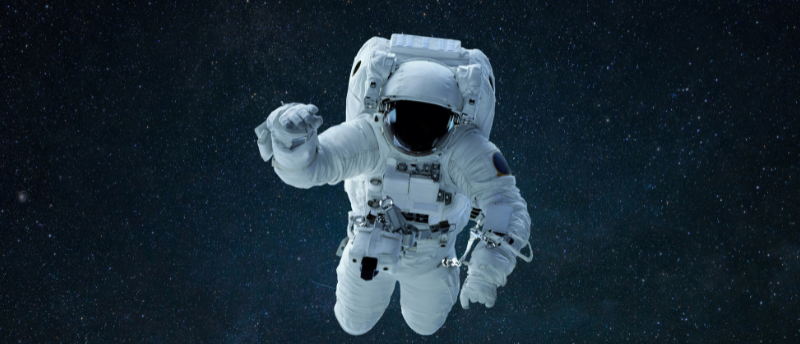Study sheds light on the molecular mystery behind astronauts’ weakened immune systems

Space travel alters gene expression in leukocytes and could explain the weakened immune system that astronauts experience.
Leaving the Earth’s atmosphere puts the human body under enormous physiological strain. Most corporeal functions are disrupted and negatively affected even after brief ventures into space. This makes sense considering that for our entire evolutionary history up until 1961, we were not exposed to the unrelenting physical conditions of space, namely microgravity and exposure to the cosmic radiation our atmosphere reflects.
Our immune systems seem particularly sensitive to spaceflight. Astronauts report picking up rashes as well as respiratory and non-respiratory viruses much more frequently on the International Space Station (ISS) than they would on Earth. A new study, led by Odette Laneuville (University of Ottawa, Canada), has, for the first time, shed light on the molecular mystery behind this weakening of the immune system.
The team had the unique opportunity to take blood samples from 14 astronauts (11 male and 3 female), all of whom were on missions on the ISS lasting 4.5–6.5 months. Four samples were taken whilst they were on the satellite and frozen for analysis upon their return. Blood was also taken both before their take off and after they arrived back on Earth.
 One small step for man changes the brain
One small step for man changes the brain
Researchers find that ventricle volume increases during extended periods of time in space and takes years to return to pre-flight volume.
From these samples, leukocytes (white blood cells) were extracted and RNA was isolated. RNA sequencing was then used to measure gene expression. The results from this analysis showed that of the 15,410 genes in the human leukocyte transcriptome, 276 genes had their expression disrupted at some point during the study.
These 276 genes were divided into two clusters; the downregulated cluster (249 genes), which exhibited a decrease in expression, and the upregulated cluster (29 genes), which exhibited an increase in expression. These were mostly protein-coding genes.
Temporal analysis displayed that these disruptions occurred immediately upon arrival in space and remained in place for the duration of their journey. Reassuringly, the team also found that leukocyte gene expression returned to normal levels once the astronauts were back on terra firma, often within a few weeks.
However, the question remains of what is to be done about the weakened immune system in space, which has serious implications for long-term space missions. “A weaker immunity increases the risk of infectious diseases, limiting astronauts’ ability to perform their demanding missions in space. If an infection or an immune-related condition was to evolve to a severe state requiring medical care, astronauts while in space would have limited access to care, medication or evacuation” said co-author Guy Trudel.
With space tourism and the exploration and colonization of Mars on the horizon, as well as the continuing missions by space agencies from all over the globe, it is pertinent that a solution is found to alleviate the strain space flight puts on our immune systems. Laneuville explained that “the next question is how to apply our findings to guide the design of countermeasures that will prevent immune suppression while in space in particular for long-duration flight”.
The results of this study could be seen as a launch pad for future work, and Laneuville hopes that it will lead to the development of a prophylactic immune support treatment for those venturing into the final frontier “The health of astronauts while in space, especially during long missions, would benefit from detecting both immune dysfunction and sub-clinical inflammation. Early detection provides opportunities for intervention, with the aim to prevent a progression towards severe symptoms.”